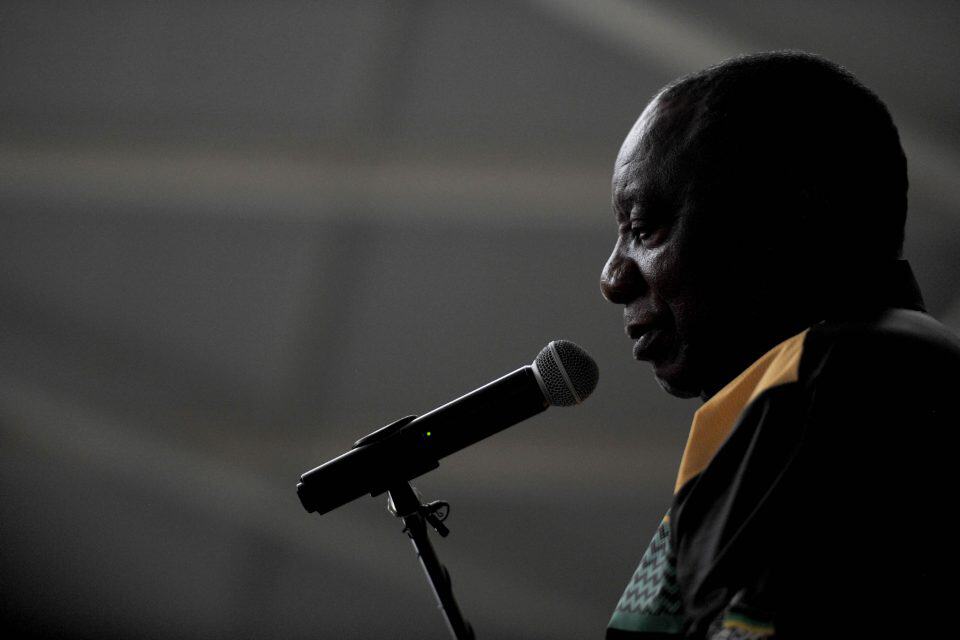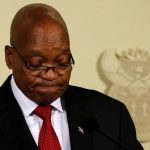Now is the time for an emancipatory alternative
South Africa needs to develop a viable route towards a genuinely democratic and egalitarian society. Cyril Ramaphosa does not offer a meaningful alternative.
Author:
6 May 2019

The Economist magazine, investment firm Goldman Sachs and the South African Communist Party all see strong support for President Cyril Ramaphosa at the polls in the 8 May elections as the best way forward for South Africa.
The standard argument for this position takes the view that Ramaphosa is the only viable buffer against the avarice, authoritarianism and, in some cases, outright chauvinism, of the predatory nationalists in the ANC and the EFF.
It is undeniably important to put a stop to the looting that marked the years under then president Jacob Zuma, along with the descent into crude forms of chauvinism and, particularly in KwaZulu-Natal, the routine mobilisation of political violence.
Related article:
But Ramaphosa is a billionaire, one of the people whose personal fortunes have benefited the most from the compromise that saw the ANC – which had won a global moral victory, but failed to mount a serious military campaign against apartheid or to sustain popular power after the transition – take state power in 1994.
Ramaphosa’s understanding of the world is, in many respects, now typical of that class, what the Occupy movement in the United States called the 1%. He is as much a Davos man as French President Emmanuel Macron or former British prime minister Tony Blair.
Cleaning up the state and restoring the basic integrity of some of its institutions would, of course, be welcome. But it is not, on its own, enough to start to address the conditions that allowed for the predatory and authoritarian project that cohered around Zuma to win control of the ruling party – and then the state – in the first place.
Prospects from the Left
Going back to things as they were before Zuma’s ascent to power is not a politically viable option. The only alternative to those who exploit the massive racialised impoverishment and exclusion in our society for their own ends is a project that offers a genuine route to a more just society. That requires both ideas for viable alternatives and the development of the social forces to support the realisation of those ideas. Ramaphosa has neither. He is, to put it plainly, utterly bereft of both.
Across the planet, candidates that support the neoliberal elite consensus that crashed and burned in the financial crisis of 2008 are now unelectable. The advantage has rapidly shifted towards the Right, and to forms of politics that incite and pander to people’s crudest prejudices to turn ordinary people against each other while handing an ever greater share of the collective wealth over to the billionaire class.
Where there are real prospects of effective opposition to the horror of figures like Brazil’s Jair Bolsonaro, America’s Donald Trump, India’s Narendra Modi and, closer to home, Rwanda’s Paul Kagame, they come from the Left, and the promise to mobilise popular organisation to empower the state to share the collective wealth of humanity on a more equitable basis. This is why, for instance, Bernie Sanders, and not Hillary Clinton, would have been the correct Democratic candidate to run against the Republican Trump in the United States.
Local particularities
South Africans are often insular and obsessed with our own pain and its particularities. And we certainly do have some particularities. The history of national oppression and the hegemony won by a national liberal movement, for instance, means that deeply conservative figures such as Zuma often mask themselves in elements of the language of the anti-colonial Left. The EFF can engage in the most atrocious kind of public sexist intimidation, along with other forms of chauvinism, and still be called progressive.
But our society was fundamentally shaped by colonialism, a global project, and much of our economy remains in the hands of global capital. We are not an island apart from the rest of humanity.
No society in history has been able to sustain the mass unemployment that has been visited on, in particular, young black people in South Africa. No society on the planet can prosper in the world to come with the atrocious education that is foisted on most of our children. No society can endlessly endure the kinds of violence that are a routine feature of life for the majority in the country.
We inhabit as clear a case as any of what Frantz Fanon called “non-viable society, a society to be replaced”.
Radical disruption
Ramaphosa and many of his backers assume that we can restore things to the way they were before Zuma disrupted the post-apartheid settlement. The Economist and Goldman Sachs seem to think that we are the one country where the liberal order can be restored. We are not.
Even if Ramaphosa were to acquire the sort of power within the ANC that would allow him to drive his agenda effectively, we would remain a non-viable society with millions of people locked out of opportunity. The inevitable result of that is profound disruption of business as usual.
We cannot make easy assumptions about the character of that disruption. Radical disruption can, whether via some charismatic charlatan talking up a good game on television or some kind of rupture in the streets, move in very dangerous directions. Already xenophobia, a key ideological touchstone for much of the Right around the world, is rapidly being normalised in our politics.
Related article:
We require, and with far more urgency that most other societies, a genuinely progressive alternative to a discredited liberal consensus. We require that the wealth of this society be understood as the property of the people as a whole and redirected not to a cynical and rapacious counter-elite, but to where it can alleviate want and suffering most effectively, and unleash human potentially most efficiently.
We need inclusive, safe and beautiful cities, with glorious parks that can be enjoyed by all. We need schools in which every child can enjoy sport and music, and learn what they need to learn to be able to thrive in a rapidly changing world. We need streets on which women can walk, linger and laugh in safety. We need to take deliberate and effective measures to oppose the racism that continues to fester and reproduce itself a quarter of a century after first post-apartheid president Nelson Mandela was sworn into office.
Ramaphosa does not provide a viable and sustainable alternative to the altogether grim forms of politics that cohered around Zuma, and now seek other champions in and out of the ANC. This is not the time to abandon aspirations for a genuinely democratic and egalitarian society. On the contrary, the imperative of the moment, a perilous moment to be sure, is to recover the prospects for a genuinely emancipatory alternative.


